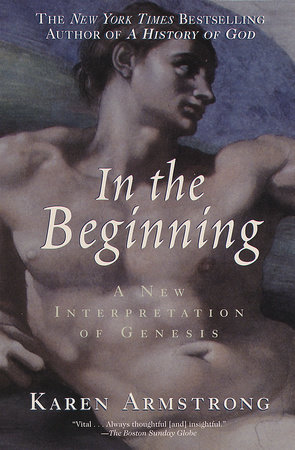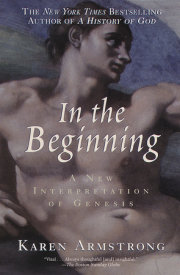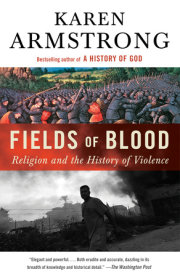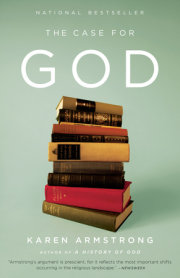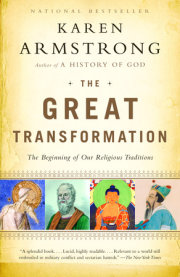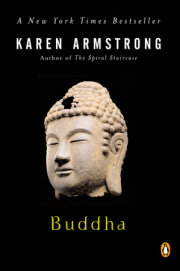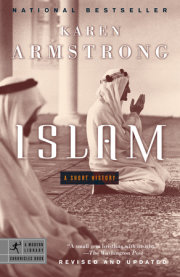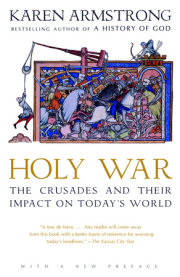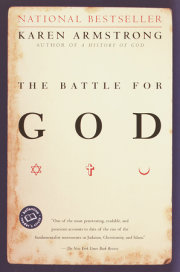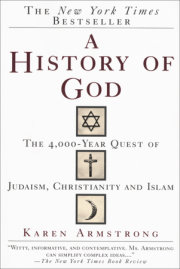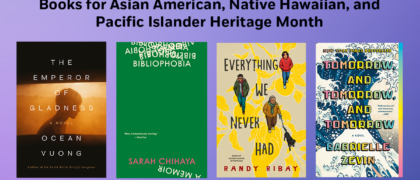Wrestling with God and Scripture
ONE OF THE MOST HAUNTING SCENES IN Genesis is surely the occasion when Jacob wrestled all night long with a mysterious stranger and discovered that he had in reality been struggling with God (Genesis 32:24–32). It was a moment of crisis. Jacob was returning to his homeland after an absence of twenty years. He feared that his brother, Esau, whom he had gravely wronged, would kill him when they met the next day. He was full of dread and felt inadequate for the task that God had set him. That night Jacob camped alone at the wild gorge of the Jabbok stream on the borders of Canaan. There, the biblical writer tells us laconically, “a man wrestled with him until daybreak.” When he found that he could not overpower Jacob, his assailant struck him on the hip, dislocating it, just as the dawn was breaking. Still Jacob refused to let him go and, for once in his confused life, was able to rise superbly to the occasion. He knew that this was no ordinary opponent, yet he did not ask for a revelation or a miracle. Instead, he asked for a blessing and was given a new name: “You shall no longer be called Jacob,” said the stranger, “but Israel, for you have striven with God and with humans, and have prevailed.”
Then Jacob asked him, “Please tell me your name.” But he said, “Why is it that you ask my name?” And there he blessed him. So Jacob called the place Peniel, saying, “For I have seen God face to face, and yet my life is preserved.” (32:29–30)
It is surprising to find this incident in the Hebrew Bible. Later the descendants of Jacob/Israel would insist that no human being could look upon the face of God and live. They would find it blasphemous to imagine their deity appearing to any mortal—however august—in human form. Yet the editors who put together the final text of Genesis in about the fifth century BCE felt able to include the tale because it so eloquently described the religious experience of Israel. There would be no final revelation: God would never fully impart his name and nature to his people. The sacred was too great a reality to be contained within a purely human definition or system of thought. Thus, the people of Israel would have only fleeting and frequently ambiguous glimpses of the divine, though they would know that they had been blessed. Their lives had been touched by a reality that transcended mundane existence, and that elusive contact gave them the strength and insight to face the challenge of an uncertain world. After this strange encounter with God, Jacob left Peniel, limping from his damaged hip, just as the sun was rising, fully prepared to face his brother and achieve the difficult reconciliation. Above all, the Israelites recognized the image of the wrestling match. They did not imagine their religious heroes achieving enlightenment effortlessly or with the calm serenity of a Buddha. Salvation was a painful, difficult process. Hence the significance of the very name “Israel,” which can be translated “One who struggles with God” or even “God-fighter.”
Jacob’s mysterious combat at the Jabbok is also an emblem of the painful effort that the Bible so often demands of its readers. In almost all cultures, scripture has been one of the tools that men and women have used to apprehend a dimension that transcends their normal lives. People have turned to their holy books not to acquire information but to have an experience. They have encountered a reality there that goes beyond their normal existence but endows it with ultimate significance. They have given this transcendence different names—Brahman, dharma, nirvana, or God—but, however we choose to describe or interpret it, it has been a fact of human life. We are constantly aware of an ideal level that contrasts with the world around us. We may not regard this realm as supernatural; we may prefer to find it in art, music, or poetry rather than in a church or synagogue. But human beings have persistently sought a dimension of existence that seems close to our normal lives and yet far from them. Sacred scripture has been one of the principal means of introducing people to a world of ultimate truth, beauty, and goodness. It has helped human beings to cultivate a sense of the eternal and the absolute in the midst of the transient world in which they find themselves.
But we have to know how to read our scriptures. They demand an imaginative effort that can sometimes be as perplexing and painful as Jacob’s wrestling match. The true meaning of scripture can never be wholly comprised in a literal reading of the text, since that text points beyond itself to a reality which cannot adequately be expressed in words and concepts. Hindus, for example, believe that the sound of the words in the Vedas is just as important as their lexical sense. Thus the syllable om has no conceptual significance, but when people have chanted it, listening to the silence that precedes and follows it, they feel that they have found a mysterious bridge to the divine. Buddhists of the Nichiren school have discovered that chanting the mere title of the Lotus Sutra yields access not only to the truths of the book but to the ineffable reality that lies beyond them. Many Buddhists and Muslims are able to derive inspiration from a scripture written in a language that they do not understand.
This is obviously very different from the way we normally read books in the modern West. Our scientific culture trains us to look for the literal truths of the words on the page. We expect a text to express its ideas as clearly as possible. In a philosophical or historical work, we will often judge writers by the precision and consistency of their arguments; we are likely to condemn a work that is deliberately vague or paradoxical or that presents mutually exclusive arguments. There are many Jews and Christians who have come to apply the same standards to the Bible. Some, for example, have argued that the first chapter of Genesis is a factual account of the beginning of life on earth: they believe that God really did make the world in six days, and that those scientists who maintain that it took billions of years to evolve must be wrong. What we need to understand is that the Bible does not present its truths to us in this way. Reading it demands the same kind of meditative and intuitive attention that we give to a poem. We often have to wrestle with the text, only to learn that we are denied the certainty of a final revelation.
Genesis has been one of the sacred books that have enabled millions of men and women to know at some profound level that human life has an eternal dimension, even though they have not always been able to express this insight in logical, rational form. Like any scripture, Genesis points to a reality that must essentially transcend it. But the writers employ different methods from those of the Hindu Vedas or the Buddhist Sutras. The biblical authors force us to make an imaginative effort. They imply that it is a hard struggle to discern a sacred reality in the flawed and tragic conditions in which we live and that our experience will often be disconcerting or contradictory. Like Jacob, we will have to wrestle in the dark, denied the consolations of final certitude and experiencing at best only transient, elusive blessing. We may even find that we have been wounded in the course of our struggle.
Copyright © 2011 by Karen Armstrong. All rights reserved. No part of this excerpt may be reproduced or reprinted without permission in writing from the publisher.

